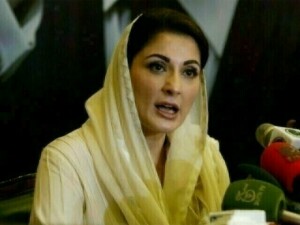ARTICLE: Islam enjoins upon its followers to integrate their spiritual and mundane life. It founded a political system which guaranteed freedoms and liberties. It controls the state authority by laying down constitutional principles that enable Muslims and others to live peacefully and practice their faiths. The state authority provides means to protect their rights and enforce obligations. The cornerstone of this political system is rule by consent. Other qualifications are only enabling to ensure justice and fairness. In the ruler, not only the political power but spiritual authority is vested too. But none has a superior claim to rule on the basis of race, blood, wealth and colour as all these idols of the age of ignorance were shunned and broken by the Prophet of Islam Muhammad (PBUH) in his last sermon at Makkah. The ideas which gave birth to democracy, political sovereignty, rule of law and justice, have their origin in the Muslim political thought. It was this basic principle of Islamic constitutional law, i.e., rule by consent, which caused the most horrific, barbaric and tragic incident of the Muslim history and for which the beloved grandson of the Prophet Muhammad (PBUH), Hussain Ibne Ali (R.A.) laid his life and embraced martyrdom in 61 Hijra at Karbala, Iraq, when he refused to accept Yazid as a ruler of the Muslim state. Hussain (R.A.) became an eternal symbol of resistance in human history.
Muslims, across the world, commemorate and mourn this incident every year. Although, it permanently divided Islam into two opposing sects of Sunnis and Shias but the lesson which Hussain (R.A.) gave to humanity by offering an unprecedented sacrifice is commonly shared by all sects of Islam and love for the family of the Prophet Muhammad (PBUH) is an article of faith amongst Muslims. The message and the importance of the legitimacy of the rule and the ruler is so important for the existence of a Muslim society and for the achievement of the objects of the Shariah that Hussain (R.A.) sacrificed dearest members of his family to uphold this principle. Allama Muhammad Iqbal, the philosopher poet, alluded to the significance of this sacrifice by Hussain (R.A.) in his poetry many times. Thousands of books narrating this incident and poetry in almost all the languages spoken in the Muslim world are there but the underlying message for which Hussain (R.A.) and his immediate family and followers stood for is hardly followed in letter and spirit in the Muslim lands.
It is hardly recognized, owned and cherished by the Muslims that when other nations were struggling under ignorance and different types of monarchies, dictatorships and barons, the founder of Islamic faith, our prophet, Muhammad (peace be upon him) founded a state in Medina and laid down several foundational constitutional principles which provided the basis for the constitutional governments of the modern Europe, the Americas and other places many centuries later. The rule by consent, rule of law, equality before law and equal protection of law, and in his last sermon at Makkah, the Prophet of Islam (PBUH) gave a charter of rights and made several declarations against discrimination on the basis of colours, race and creed, against economic exploitation and concentration of wealth, sanctity of human life and dignity of man, are only a few instances. All these greater human values and norms find their origin in teachings of Islam. But during the three hundred years of colonization of the Muslim lands and stagnation of Muslim thought after the amalgamation of other cultures with the pure teachings and message of Islam, and unremitting infightings, fall of Muslim societies began that continued till today. A crisis of identity looms over a Muslim mind today. The concepts of millat or ummah has succumbed to a divide on untenable basis. When the Ottomans were at the gates of Vienna, Safavid dynasty breathed on their necks. Several hundred years later when Imam Khomeini overthrew the Shah in 1979, this revolution was considered a potential threat by the neighboring regions and its alleged export to those lands resulted in proxy wars between the opposing sects shedding innocent blood. Saddam Hussain, with the aid and advice of the likes of Donald Rumsfeld, went into a futile but bloody war with Iran and Muslim blood was again shed on both sides. The seeds of hatred were irrigated with the new divisive literature was produced during the Iraq and Gulf wars. Yemen and Syria are ravaged by the civil wars.
Muslims fail to recognize and understand that the Christian world stands integrated under different military, economic and political alliances but the Muslims are divided into Arabs, non-Arabs and others. A new fight has begun over the leadership of the Muslim world. Arabs feel threatened by the rising power of Turkey. Iran commands the northern region of Arabia after several years. In these critical times one hardly finds sane and sincere voices. It needs a collective decision making. Leadership of the Muslim world does not belong to any state but to an institution or body which has the common objective of bringing unity amongst the Muslims, independence (economic and political) and effectiveness and the power to enforce its decisions. This pernicious divide amongst the Muslims will only further weaken them. The so-called economic interests of the rich states today pose a greater existential threat to the Muslim world. Afghanistan, Kashmir, Yemen, Iraq, Syria are being burnt down by the continuing flames of useless wars. There is no effective Muslim forum where these matters can be discussed and decided. Almost four hundred years ago, European nations were fighting in a similar way but in 1648 they entered into the treaty of Westphalia, which brought peace to Europe and provided ground for the Industrial and Economic Revolution. The ineffectiveness of the available forums such as the Organisation of Islamic Conference (OIC) and the Arab League is evident from the fact that even a substantive resolution cannot be passed on Illegally Indian Occupied Kashmir, Yemen and Syria. Russia, the US and others are the arbiters of peace in these lands. Critics and historians hold the view that this state of affairs is mainly due a lack of connection between the rulers and the ruled in the Muslim world.
One of the underlying principles enshrined in the preamble of the constitution of Pakistan refers to an original constitutional principle laid down by the Prophet of Islam (PBUH) that a political system was a sine qua non to enable Muslims and others to practice their faiths. It is not a theocracy as viewed and propagated by the westoxified intelligentia in the context of Europe's experience with papacy and manipulation of state power by the clergy which ultimately resulted into a political thought that separated the Church from the state- and rightly so.
This unqualified obedience of the Ruler is an article of faith but in order to put it beyond controversy the legitimacy of ruler must be based on consent expressed though legitimate means. The dream of a true Islamic state based on the universal principles of peace, justice, fairness and the rule of law remains elusive.
(The writer is an advocate of Supreme Court and former Additional Attorney-General for Pakistan)
mwaqarrana@yahoo.com
Copyright Business Recorder, 2020
The writer is Advocate Supreme Court and a former Additional Attorney-General for Pakistan





















Comments
Comments are closed.